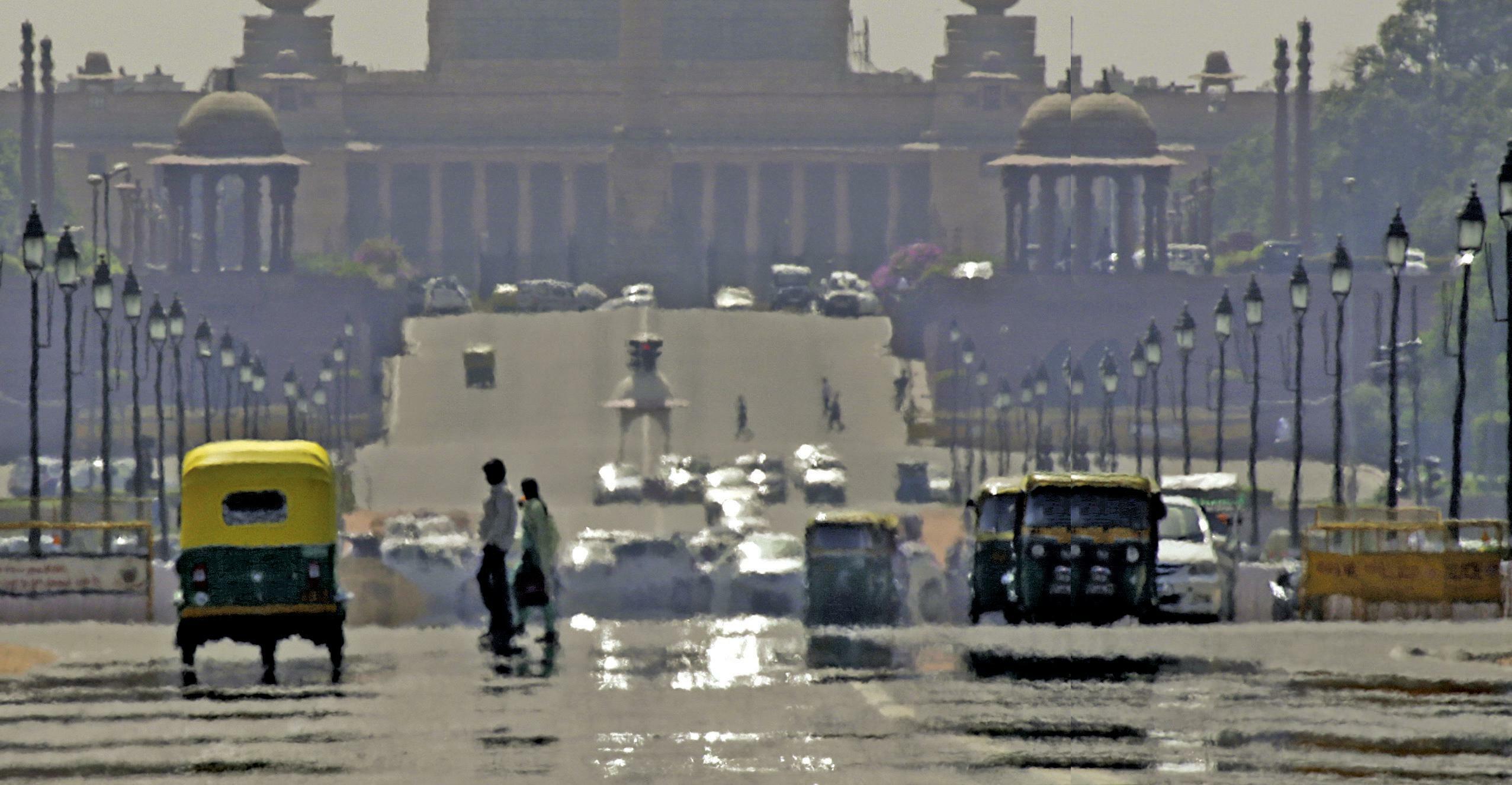Intentar ORO - Gratis
URBAN DISCOMFORT
Down To Earth
|May 01, 2024
Poorly planned, heat-trapping infrastructure, along with dwindling natural spaces, turn up the temperatures in major Indian cities
-

IN A warming world, urbanisation has a profound impact on heat. As a city's population grows, infrastructure needs to be developed to cater to its requirements.
Cities contribute more than two-thirds of global carbon dioxide emissions, according the UN Environment Programme. However, their environmental impact goes beyond emissions. As a city grows, the way buildings, roads and railways are laid out; the density, height and size of buildings, and the materials used; the amount of green spaces and water bodies; and level of human activities such as use of vehicles and airconditioners together determine how much heat is retained in the immediate area.
When released, this heat raises the temperatures of the nearby atmosphere. As the grey infrastructure gets denser and more concentrated, it erodes the natural spaces that act as heat sinks and keep the environment cool (see 'Influencing factors'). If left unchecked, such development could create an urban heat island effect, with cities recording high temperatures that can adversely impact the health of people, and also potentially be fatal.
To analyse the status of urban heat islands in the country and establish the ongoing heat burden that is a result of their development, Delhi-based think tank Centre for Science and Environment (CSE) conducted a study in nine cities-Delhi, Jaipur, Kolkata, Nagpur, Pune, Ahmedabad, Hyderabad, Chennai and Bhubaneswar.
These cities, which are of different sizes and are located in different climatic zones, show that the problem of heat is not restricted to a specific kind of climate or geography.
Esta historia es de la edición May 01, 2024 de Down To Earth.
Suscríbete a Magzter GOLD para acceder a miles de historias premium seleccionadas y a más de 9000 revistas y periódicos.
¿Ya eres suscriptor? Iniciar sesión
MÁS HISTORIAS DE Down To Earth

Down To Earth
THINK TWICE BEFORE FELLING SAL TREES
Many trees considered to be affected by sal borer in the 1990s are still alive today
1 mins
February 16, 2026

Down To Earth
EDGE OF SURVIVAL
Caste divides deny marginalised communities land, resources and essential aid, leaving them more vulnerable to climate disasters
6 mins
February 16, 2026

Down To Earth
A WISH LIST?
Union Budget for 2026-27 conveys the impression of a roll-call of intentions and ambitious proposals, with little detail on their formulation
6 mins
February 16, 2026
Down To Earth
Break down the gender wall
THE RULING National Democratic Alliance (NDA) government has been heavily invested in the goal to make India a developed economy by 2047.
2 mins
February 16, 2026

Down To Earth
MENSTRUAL HEALTH, NOW A FUNDAMENTAL RIGHT
In a landmark judgement, the Supreme Court has recognised menstrual health and hygiene as a fundamental right under Article 21 of the Constitution of India, which guarantees the right to life and dignity.
8 mins
February 16, 2026

Down To Earth
Of devolution and new disasters
The 16th Finance Commission pushes for changes in view of new fiscal and climatic conditions
11 mins
February 16, 2026
Down To Earth
Rising risks of plastics
NEGATIVE IMPACTS on human health due to emissions linked to the plastic lifecycle could double by 2040, according to a study published in The Lancet Planetary Health in January.
1 min
February 16, 2026

Down To Earth
GAP BETWEEN EPIDEMICS NARROWING
A watershed-based and landscape-level approach is needed to address forest degradation
2 mins
February 16, 2026

Down To Earth
WAITING TO STRIKE
Sal heartwood borer is considered the biggest threat to forestry in India, especially to the sal tree, where it lives and breeds.
11 mins
February 16, 2026

Down To Earth
A SPRING DELIGHT
Mustard flowers are not meant only for the eyes. Invite them to your plate once in a while
3 mins
February 16, 2026
Listen
Translate
Change font size
